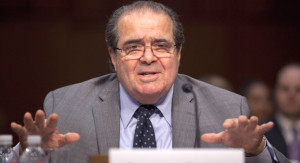Antonin Scalia’s tragic death in far West Texas has taken on an air of weirdness that somehow only seems possible in this state.
The U.S. Supreme Court justice — the senior member of the nation’s highest court — died in Marfa while on a hunting vacation.
How did he die? It seems that a justice of the peace issued a cause of death without ever seeing the late justice’s body. There also was a significant amount of time before anyone was able to contact a JP to make the pronouncement in the first place.
As the Washington Post reported, Justice Scalia’s life was one of order, process and decorum. The hours after his sudden and shocking death have been an exercise in confusion and chaos, the Post reported.
These rather startling circumstances bring to mind some of the criticisms that have been leveled at this level of Texas jurisprudence — and I use the term loosely.
It’s that justices of the peace are empowered to make these declarations with little or no actual medical training to do so. We put this responsibility in the hands of elected politicians who, as often as not, are laypeople with little or no formal training in the law, let alone in medicine.
What’s worse in this instance is that the JP allegedly made the call in absentia. How in the world does someone do that? How is it possible that the death of a member of the United States Supreme Court can be handled so sloppily and be the subject of so much confusion?
Only in Texas, it seems, is such a thing even remotely possible.
I am sensing an investigation into the madness that ensued after Justice Scalia’s death is in order.
